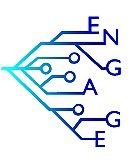ENGAGE Fellows participate in Science is Wonderful fair in Brussels
ENGAGE fellows Bhavna Prasad and Luis Chacon had the opportunity to participate in ‘Science in Wonderful, 2024’ fair by the…
Read More
ENGAGE co-organized the Quantum Computing weeks at the University of Padua
ENGAGE fellows attended the quantum computing weeks at the University of Padua in Italy from 6th to 17th of May….
Read More
ENGAGE Article: Harnessing Anomalies: Using Case II Diffusion for Practical Applications
by Sharon Volpes Diffusion phenomena are omnipresent in nature, playing key roles in various fields ranging from physics to biology….
Read More
ENGAGE Article: Ethics for artificial intelligence
By Federico Zecchi Artificial Intelligence (AI) plays nowadays a crucial role in various industries, spanning healthcare, finance, retail, and manufacturing….
Read More
ENGAGE Article: Exploring the Mysteries of Wetting on Soft Surfaces: A Journey into Computational Engineering
By Naveen Kumar Have you ever wondered why raindrops bead up on some surfaces while spreading out on others? Deep…
Read More
ENGAGE fellow Bhavna Prasad selected to present at the European’s Commission Science Fair “Science is wonderful”
Bhavna Prasad has been selected to present “Nuclear Disco” at the European’s Commission Science Fair “Science is wonderful” scheduled for…
Read More
ENGAGE Fellow Luis Alberto Chacon receives poster award from European Physical Society
ENGAGE funded by PhD Fellow, Luis Alberto Chacon, was awarded one of the three poster prizes awarded by the European…
Read More
ENGAGE fellows participate at European Researchers Night
ENGAGE PhD fellows, Sisem Ektirici and Naveen Sabramanian, joined The Cyprus Institute team to bring the latest tech news to…
Read More
ENGAGE accepts applications for PhD positions in High Energy Physics and Synchrotron Radiation
PhD fellowships are currently available in High Energy Physics and Synchrotron Radiation, please check here for more details and submit…
Read More
ENGAGE recordings from summer workshops are now available
The recordings from the ENGAGE workshops held in June and July 2023 are now available: Workshop on HPC and Applications…
Read More
